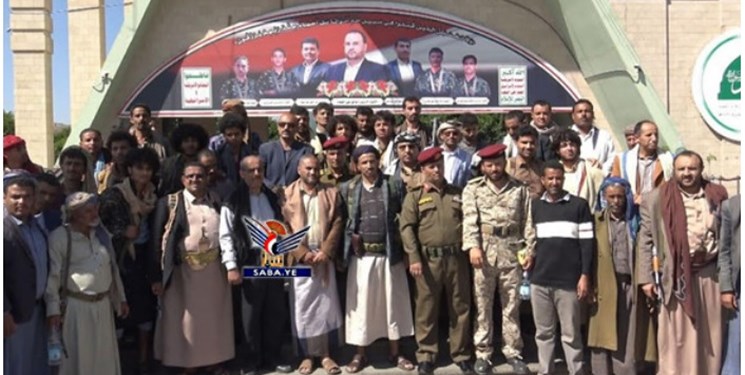More than 70 members of the Saudi coalition join the Yemeni army.
Eighty-seven members of the Saudi-led coalition entered Sanaa-controlled areas with their military equipment after announcing their secession from the Saudi-Emirati coalition.
Informed sources reported that dozens of elements affiliated with the Saudi-Emirati aggression coalition in the city of Ma’rib left the coalition and joined the Yemeni army.
Al-Khobar Al-Yameni news website reported, quoting these sources, that 78 members of the Saudi coalition, after announcing their separation from the coalition, entered the Sanaa-controlled areas with their military equipment today, Thursday.
According to the base, the men were stationed at the Sahan al-Jan camp west of the city of Ma’rib, but joined the Yemeni forces after learning of the Saudi coalition’s real goals in the war against Yemen.
Last Thursday, 15 soldiers and officers announced that they had left the aggression coalition and returned to their country’s army. Among them was Colonel Abdul Rashid Muthanna al-Sanbari, a commander in the 81st Division in Ma’rib.
Those who left the coalition thanked the Yemeni government for issuing a general amnesty order and called on all those who were deceived by the coalition’s propaganda to use the amnesty and return to their homeland.
Currently, the Saudi coalition is in a dire situation in southern Yemen; Saudi Arabia and the United Arab Emirates are at loggerheads over the distribution of cakes in southern Yemen, and clashes between their affiliated mercenaries take place on a weekly basis.
In this regard, informed sources announced today, Tuesday this week, that Riyadh has started direct talks with the Ansarullah movement, and the two sides examined “security along the Saudi border and future relations after any peace agreement with Yemen.” Saudi Arabia has now concluded that it is no longer useful to support an institution such as the “Presidential Council” in southern Yemen, and the possibility of its collapse remains strong. For this reason, it has been forced to seek a permanent agreement with the Yemeni government









